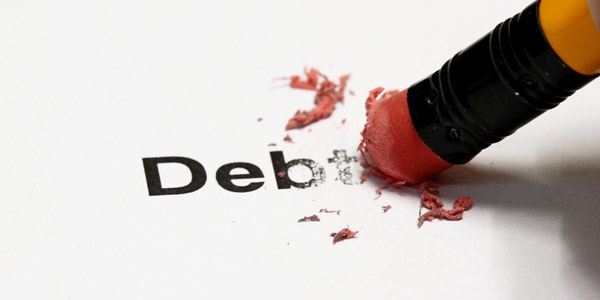The 7 main differences between DAS DPPs and DMPs
If you’re lucky enough to live in Scotland, there’s a whole host...
UPDATE: the bankruptcy application process for people living in England, Wales and Northern Ireland changed in 2016. Visit our bankruptcy changes page for more information.
This page contains information about debt solutions available in England, Wales and Northern Ireland. Debt advice in Scotland involves similar but different solutions. Before considering an IVA as a debt solution, please make sure you fully understand the risks involved. More information can be found on our website

With some financial situations you may have more than one option for resolving your debt. We’ve all heard of personal bankruptcy and many of us have now heard of an individual voluntary arrangement or IVA.
They’re both forms of insolvency and in some situations it can be a choice between these two debt solutions. But, what you really want to know is this: which is best for you?
Well, both solutions will get you debt free. We regularly recommend both solutions and support those clients through their IVA or bankruptcy. It really comes down to your individual circumstances and what the best advice is.
The first thing we can say about bankruptcy is that if you qualify for it, it could be the quickest way for you to deal with your debts.
Most bankrupts are discharged after 12 months. You may need to pay into the bankruptcy for a couple more years, but in the majority of cases the whole process is usually over within three years.
On the other hand, IVAs usually last between five and six years. This can be a long time to live on a budget, but the process of setting up and entering an IVA can be a lot less daunting than bankruptcy. Additionally, once you enter an IVA you’ll have been totally briefed on what the solution entails.
So what are the pros and cons of each?
There are a lot of myths surrounding bankruptcy, and it can seem scary to some people, but in many cases it’s the quickest and cheapest option.
If you’re looking for a debt solution, it’s vital that you take advice from experts. You’ll feel much better prepared for the process if you’ve spoken to an advisor beforehand.
There are a range of debt solutions available, including IVAs and bankrutpcy. The important thing is to find the right solution for you. The first step is to put together a personal action plan online using our free debt advice tool Debt Remedy.
Whatever solution is best for you, we’ll provide the best debt help available.